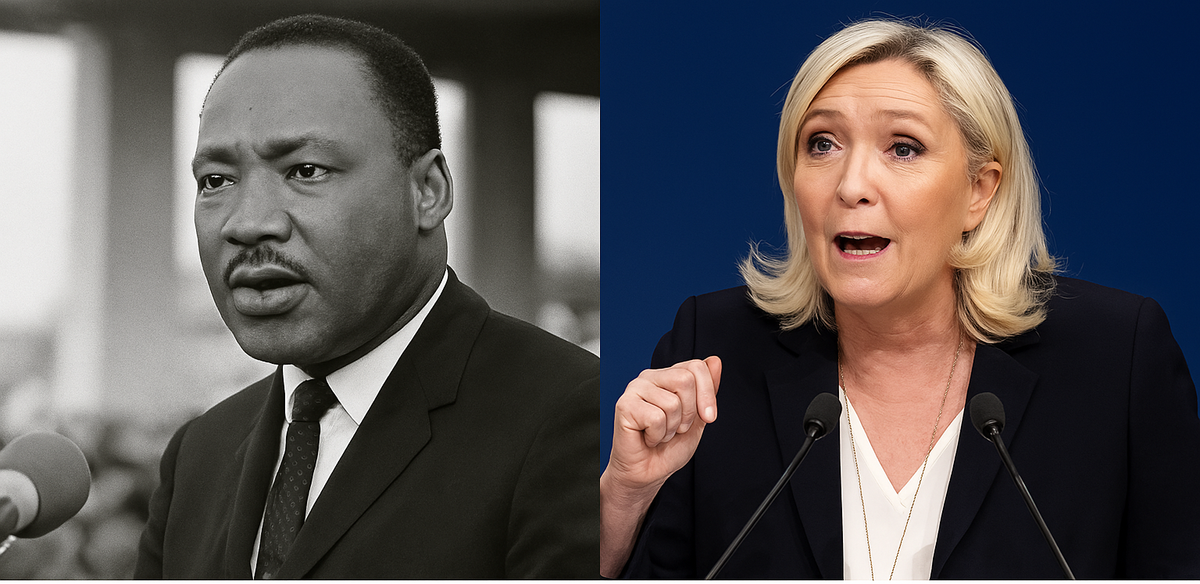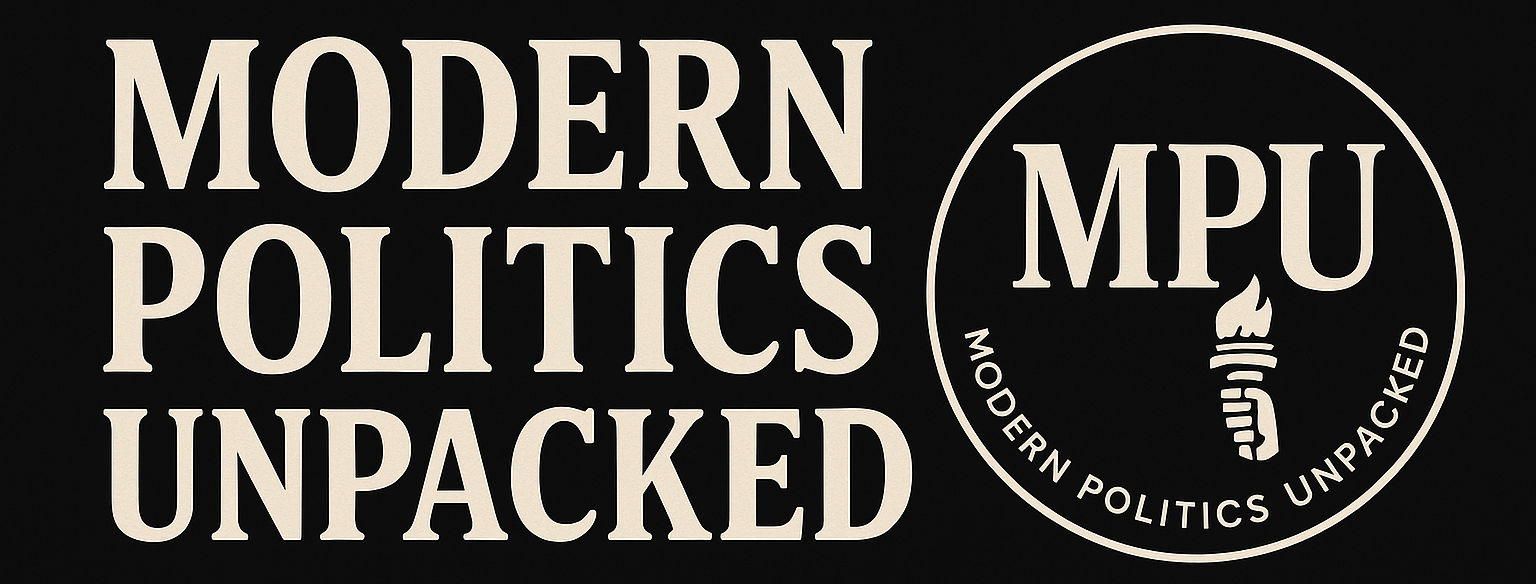Martin Luther King Jr. vs. Marine Le Pen: A Clash of Political Worlds

When Marine Le Pen evoked Martin Luther King Jr. at a rally in April 2025, she likely hoped to draw parallels between her own legal struggles and the historic fight for civil rights in the United States. The far-right leader of France’s National Rally was addressing her supporters after receiving a five-year ban from running for public office, following a conviction for misusing EU funds. She told the crowd: “We will follow Martin Luther King as an example. Our fight will be a peaceful fight, a democratic fight.”
But the comparison sparked immediate controversy. MLK’s legacy is one of non-violent resistance, social justice, and racial equality, while Le Pen leads a nationalist movement focused on restricting immigration and defending cultural homogeneity. Their political ideologies could not be more different.
This article unpacks that contrast, placing each figure’s beliefs, methods, and legacies side by side.
Martin Luther King Jr.: Ideals Rooted in Justice and Equality
Core Beliefs:
- Non-violence: King was deeply influenced by Mahatma Gandhi and Christian theology, advocating non-violent civil disobedience as a path to justice.
- Civil Rights and Racial Justice: He campaigned tirelessly against segregation and for equal rights for Black Americans.
- Economic Justice: Later in his life, King broadened his activism to include poverty, labor rights, and a critique of economic inequality.
- Democratic Pluralism: He envisioned a diverse, inclusive society where all individuals enjoyed equal dignity and participation.
Notable Quote:
“Injustice anywhere is a threat to justice everywhere.” — Letter from Birmingham Jail
Achievements:
- Leader of the Montgomery Bus Boycott (1955–56)
- Key figure behind the Civil Rights Act (1964) and the Voting Rights Act (1965)
- Nobel Peace Prize winner (1964)
- A global icon of justice and reconciliation
Marine Le Pen: Nationalism, Identity, and Populism
Core Beliefs:
- National Sovereignty: Le Pen has consistently pushed to reclaim authority from supranational institutions like the EU.
- Strict Immigration Control: Her platform includes curbing immigration, particularly from Muslim-majority countries.
- Cultural Protectionism: She often frames her campaign as a defense of "French identity" against multiculturalism.
- Populist Rhetoric: Le Pen positions herself against the elite and establishment, emphasizing "the will of the people."
Notable Quote:
“We must recover the sovereignty that belongs to the people.” — 2022 Presidential Campaign Speech
Political Milestones:
- Took leadership of the National Front from her father, Jean-Marie Le Pen, in 2011
- Rebranded the party as the National Rally to appeal to a broader electorate
- Made it to the final round of the French presidential elections in both 2017 and 2022
Side-by-Side Comparison: Ideological Contrasts
| Topic | Martin Luther King Jr. | Marine Le Pen |
|---|---|---|
| View on Race | Advocated integration and racial equality | Criticizes multiculturalism; defends assimilation |
| Immigration | Supported dignity and inclusion for all | Advocates strict immigration limits |
| Democracy | Favored pluralism and universal suffrage | Supports populist majoritarianism |
| Economics | Advocated for labor rights and anti-poverty reforms | Economic protectionism for native citizens |
| Religion | Deeply Christian, emphasized moral leadership | Secular, but appeals to Christian heritage |
| Civil Disobedience | Central to his strategy | Does not employ civil disobedience |
Misusing a Legacy: Why the Comparison Fails
Le Pen’s attempt to align herself with King is rooted in a populist strategy: casting legal challenges as politically motivated and framing oneself as a victim of establishment persecution. But MLK’s life and activism were defined by inclusive moral resistance to systemic oppression. Le Pen, by contrast, has spent her career focusing on what she sees as threats to national identity posed by immigrants and international institutions.
King sought to broaden access to democracy; Le Pen’s policies often imply narrowing it to a culturally-defined citizenry. The invocation of his name does not bridge this divide—it spotlights it.
Political analyst Jean-Yves Camus commented:
“Le Pen’s appeal to Martin Luther King Jr. is a rhetorical device — but it clashes profoundly with her political project, which has always relied on defining enemies of the nation.”
Conclusion: Opposites in Spirit
While Le Pen may claim inspiration from Martin Luther King Jr., the comparison collapses under scrutiny. One envisioned a nation of justice, built on love, peace, and universal rights. The other seeks a nation protected from outsiders, defined by cultural heritage and national sovereignty.
In the battle of ideas, King stands as a moral leader whose vision continues to inspire movements for justice worldwide. Le Pen represents a rising populist tide, tapping into fears rather than hope.
Invoking King may serve Le Pen politically—but it does not place her in his tradition. If anything, it makes his legacy all the more vital to protect.
Sources:
